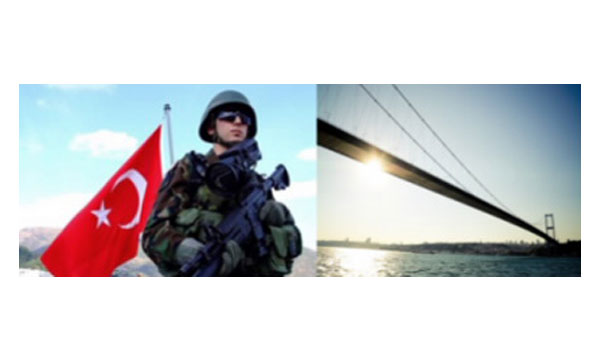Turkish Aerospace and Defence Industry Going Public – Will It Fly?

Recent growth in the Turkish economy gives boost to Initial Public Offerings and Mergers & Acquisitions
Continuous cuts in defence budgets in the United States and Europe impel the defence industry and investment society to look for new promising markets. Turkey’s rising ventures beyond its borders serves as a connection to potentially lucrative new regions, and also the country itself should be considered when planning long term investments. Turkey’s economy is remarkably stable compared to its neighbours in the Euro Zone and Middle East, which has been an important feature to attract foreign investors.
“Turkey will potentially become a major exporter to the Gulf Cooperation Council and Association of Southeast Asian Nations countries, and the Turkish armed forces will play an increasingly integral military role in the Middle East and beyond, requiring next generation technologies,” highlights Philipp Reuter, Managing Country Director of Frost & Sullivan Turkey. The country is 15th among the global top military spenders and sixth in Europe, accounting for 1.1 per cent of global military spending in 2011. The state’s unique geo-political condition has encouraged sustained military spending in contrast to global trends.
Turkey is also one of the countries least affected by the crisis in 2008 and 2009, and the country has managed to develop better financial policies to regulate the investment and banking environment. The current economic situation as well as instability in currency exchange rates in neighbouring countries and beyond incited the private sector in Turkey – Small and Medium Enterprises (SMEs) in particular – to adopt a more active approach to public offerings, another important source of financing. A total of 27 initial public offerings took place in 2011, which have risen to a total of 50 for 2012 already.
According to Mr. Reuter, this current business environment also drives the regional geographic expansion plans for Turkish companies which are likely to be expected to boost their merger and acquisitions (M&A) activities in global markets. “We are expecting the volume of M&A activities to increase over the next two years, which will create a better awareness for the investment society. This will cause the number of public offerings to increase even more between 2013 and 2016,” he adds. Turkish Aerospace Industries’ (TAI) Initial Public Offering (IPO) planned in 2013 highlights the positive prospects in the Turkish market, and especially in the defence industry.
TAI is a major force in the Turkish defence market, and together with Aselsan they are listed among the top 100 global defence companies. One of the various strengths of TAI is its high R&D investment on indigenous products, such as primary trainer aircraft Hurkus and Anka UAV, as well as modernisation suites. In addition, TAI is a well established supplier for many international firms, including AgustaWestland, Airbus and Boeing, Eurocopter and Sikorsky.
TAI is planning to offer 20 per cent of its shares to the public until May 10th, 2013. Mr. Muharrem Dortkasli, General Manager of TAI, stated in an interview, that they are planning to use 20 – 25 per cent of the stock market earnings to invest in local organic growth and the balance earnings to acquire foreign Boeing or Airbus solution partner companies. The target could be either a foreign company, especially one of those that have competition and labour capability problems in Europe, or a company that has a brand in foreign markets.
“TAI holds a high chance of a very successful IPO – as long as the forecast growth is reflected convincingly in the strategy of the management and the business plan,” points out Frost & Sullivan Aerospace & Defence EMEA Industry Analyst, Altug Altintas. TAI’s indigenous products have a high chance of market penetration in the region, which is likely to boost company revenues and help investors benefit further as TAI’s market shares and brand value increase.
“TAI’s IPO holds advantages not just for itself, but also for other Turkish Armed Forces Fundation (TAFF) companies, such as Havelsan and Roketsan,” summarises Mr. Altintas. “By following TAI’s footprints, other TAFF companies may also create extra earnings by going public. The more revenue pouring into R&D projects, the more chances of building high value added margins by serving indigenous products.”
